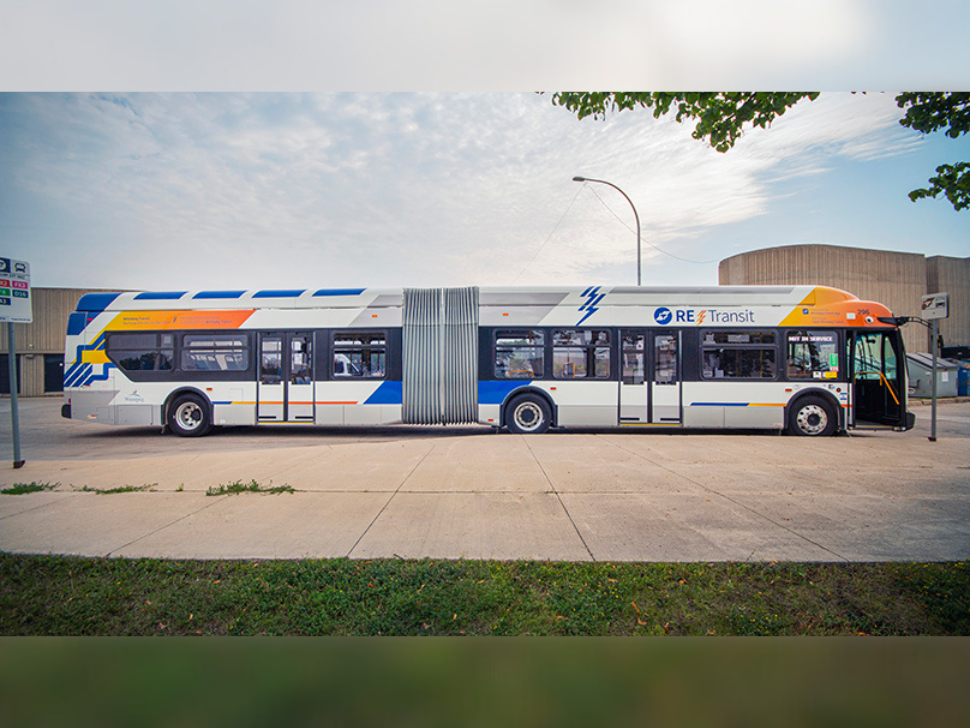Winnipeg Transit will be set apart from other Canadian cities starting next week.
The first 60-foot zero-emission bus (ZEB) is going into limited service. This marks the first Canadian city with 60-foot battery-electric buses in its fleet. By the end of 2025, it is expected that there will be eight 60-foot ZEBs in full service.
In the first 30 days of service, each ZEB will be in limited service meaning they will only be on roads during the peak morning rush and early afternoon on weekdays. Following the conclusion of the 30 days, they will be ready for full-time service.
“Investing in cleaner, more efficient public transit is essential to building sustainable communities,” said Ben Carr, Member of Parliament for Winnipeg South Centre in a news release. “With the arrival of Winnipeg’s first 60-foot zero-emission bus, our city is making transit history and leading the way in Canada’s shift to sustainable transportation. This milestone marks an important step in reducing emissions, improving air quality, and making life better for Winnipeggers. We’re proud to support projects that help communities transition to a greener future.”
“The first 60‑foot electric buses in Canada will roll out right here in Winnipeg, and they’re being built by New Flyer,” said Mayor Scott Gillingham in a news release. “This is a big step toward a cleaner, more sustainable fleet, while continuing to balance affordability and reliability for riders.”
The 60-foot buses are also known as “bendy” buses have 50% more capacity than the 40-foot buses.
16 ZEBs have arrived at the Fort Rouge and Brandon garages and include the following:
- Four 40-foot and four 60-foot fuel-cell battery-electric buses
- Four 40-foot and four 60-foot battery-electric buses
The fuel-cell battery-electric buses recharge with hydrogen and can drive up to 24 hours. While battery-electric buses need to connect to a charger to recharge and can drive for ten to 15 hours.
Each bus will complete service testing which will include battery health, energy consumption, and operating costs among other things.
The testing will show which zero-emission technology is most effective in Winnipeg's climate. All information gathered will be used to determine what steps are taken in the future.
Through the Investing in Canada Infrastructure Program, the Transition to Zero-Emission Bus Program is receiving $280.3 million in funding. Charging infrastructure will be bought along with 90 ZEBs.
24 ZEBs are expected to arrive in 2026.
